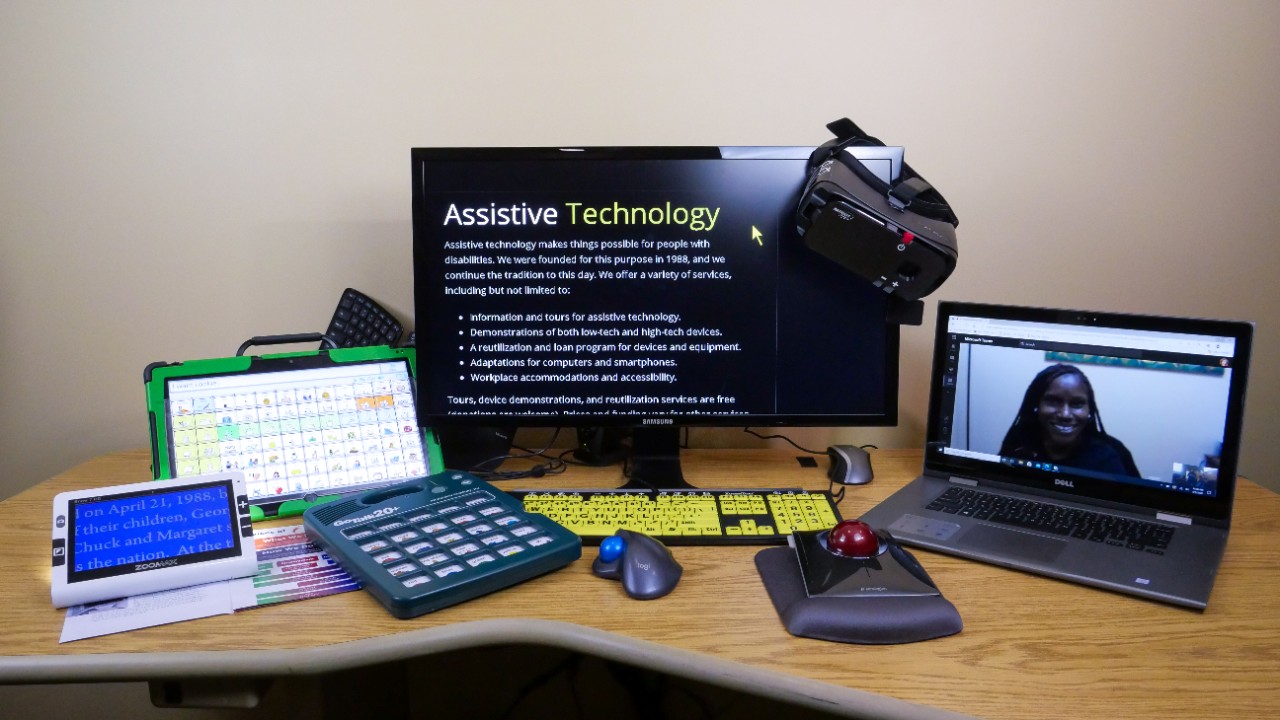Breaking Ground 104 - Pressing On: Technology and the Pandemic
By Jennifer Cunningham, Occupational Therapist Registered/Licensed, Vice President of Client Services, STAR Center, Inc.
Have you thought about what life would have been like if there had been a worldwide pandemic 20 years ago? Everything would likely have looked very different than it does today. Information from the U.S. Census Bureau reports only about half of homes had a computer just 20 years ago. Even fewer had internet access.
This year, life changed for all of us due to the COVID-19 virus. The increased number of computers in homes allowed work and school to continue as places began to close. Some with disabilities had more difficulty moving to this new way of life. Many students who had access to assistive technology in the classroom or college library were suddenly without those tools. Those who had custom solutions at work began working from home. Still others were suddenly laid off or out of work as businesses tried to figure out how to move forward.
At the STAR Center, we hear stories from our clients with disabilities, assist them through difficulties, and help them look to the future. Meeting people where they are and helping them to move forward during the pandemic has had its challenges. Through technology, we have been able to continue to make a difference for those we serve. The services we provide have not stopped as the pandemic has taken over many parts of our lives. However, the way we provide services has had to change.
Throughout our history, our work with people with disabilities across West and Middle Tennessee has mostly happened in person. Recently, we have had to change the way we do things by using video communication, phone calls, and email to continue to serve those in need. Without these tools and this flexibility, people served by the STAR Center would still be waiting for help, in many cases.
With our new ways of service, lives continue to be changed. The nurse with hearing loss was able to keep treating patients using a stethoscope with a wireless connection to her hearing aids. A teenager with difficulty talking learned to socialize using her communication device and smartphone. The music producer with vision loss received updated technology as he moved to work from home. A college student studying sign language was provided with a video studio to keep up with his classes. The young child with many medical issues was loaned a simple communication device to use as he works with his speech therapist online. Many other Tennesseans with all types of disabilities were provided daily living aids (e.g. shower chairs, wheelchairs, walkers, and vision aids) to stay independent in their own homes.
The dreams of people with disabilities in West and Middle Tennessee may have changed during the pandemic, but they haven’t gone away. With the ability to change, and through the use of technology, we have been able to press on to make a difference for those we serve.
The STAR Center was started by Margaret and Chuck Doumitt in 1988 when their two children began to lose their vision. They looked all over the nation to find solutions for their children. The only resources available were in large cities that were far away. The Doumitt family chose to stay in Jackson, Tenn. They formed a support group of parents and specialists in West Tennessee. In 2019, the STAR Center began providing Assistive Technology services in Middle Tennessee through partnerships with Vocational Rehabilitation Services and the Tennessee Technology Access Program.
The STAR Center’s mission is to help any person with any disability to realize their potential. We served over 3,000 clients in 2019. This year we celebrate our 32nd year of standing in the gap for individuals with disabilities. For more information about our services, please visit star-center.org.